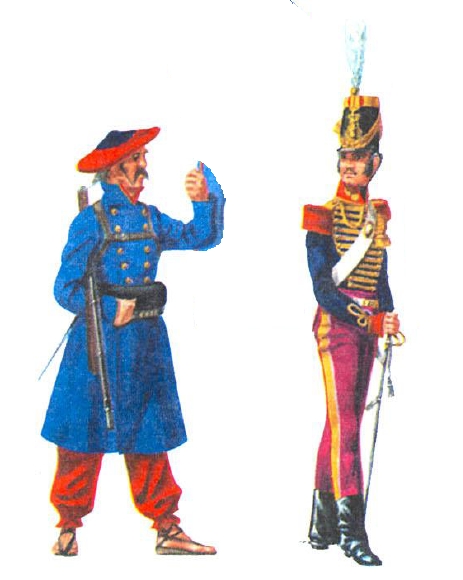Rising out of a succession dispute between two BOURBON pretenders, Carlism became a social philosophy and a political movement that endured in Spain for more than a century. It derived its name from Don Carlos (1788–1855), younger son of CHARLES IV. His status as heir apparent was undercut in 1830 when his elder brother, FERDINAND VII, put aside the Salic law that limited the royal succession to males in favor of his daughter Isabella. Don Carlos became the rallying point for Spanish conservatives who had hitherto regarded Ferdinand as the very model of a modern absolutist. These traditionalists, as they preferred to call themselves, insisted upon a strong government, a strong church and a subordinate Cortes (see CORTES,) strict censorship, and a tight social framework maintained by unchanging customs. Upon the death of Ferdinand VII in 1833 and the espousal of his daughter’s claim by Spanish liberals, the Carlists rose in revolt. Between 1833 and 1839 Spain was torn by the First Carlist War. Calling himself Charles V, the pre-tender was supported by the aristocracy, the church, and the landowning gentry as well as the rural masses of the north, including the BASQUE PROVINCES, CATALONIA, and ARAGON. He was also recognized by Vienna, St. Petersburg, Berlin, and Rome, where apprehension had been raised by the revival of Europe’s revolutionary spirit. The young ISABELLA II was championed by Spain’s liberals, who were in turn aided by military forces dispatched from Britain and France, where liberal governments had recently taken power. After years of bitter fighting key Carlist generals were won over by promises of integration into the regular army and other material rewards. They abandoned their political leaders in 1839, and Don Carlos was forced to go into exile, without abandoning his claim.
After three decades of scandal, military coups, and at least one Carlist plot to overthrow her, Isabella II was herself driven out of the country. The generals who overthrew her proved incapable of forming a new government or finding a new leader, and by 1873 the Second Carlist War had begun. The current claimant, the titular Charles VII, raised his standard in NAVARRE, the remaining stronghold of a movement that had been marginalized by economic modernization in other regions of the north. The restoration of Isabella’s son as ALFONSO XII in 1875 gave focus to the legitimist forces who defeated the Carlists decisively in 1876.
By the death of Charles VII in 1909 Carlism had become a theoretical rather than a practical cause whose philosophies spoke of absolute monarchy as an essential center of the nation and of an “integral” society rooted in history. The new pretender, Don Jaime, attempted to promote a more liberal approach for his movement but was opposed, to the point of a de facto split in Carlism, by the old guard, and the pendulum swung back to “authentic” traditionalism when Don Jaime was succeeded by his elderly uncle, Don Alfonso Carlos in 1931. The latter provided Navarese militia men who supported the Franco side in the SPANISH CIVIL WAR but refused to join in a unified monarchist front.
During the Franco regime (1939–75) Carlist claims were theoretically transferred to the Bourbon-Parma line led by Don Carlos Hugo, but their significance, both under the dictatorship and since the restoration of democracy, has been minimal.
A new crisis arose for Ferdinand VII in 1830 when he precipitated a confrontation, not with the liberals, but with his own conservative adherents. The latter had pursued a consistent line ever since 1812 when they had opposed the constitution voted by the Cortes at Cádiz, arguing for preservation of traditional institutions such as the Inquisition and press censorship. As soon as the French had been expelled, they had rallied behind Ferdinand in his abolition of the odious constitution. The ultraconservatives (who commonly referred to themselves as “traditionalists”) supported the king in all his difficulties and triumphs until it became a question of their principles colliding with his ego. Having failed to produce a son through several marriages, Ferdinand decided to name his daughter Isabella as heiress to the throne, thus abandoning the Salic law, the ancient Germanic rule of succession brought into Spain by the Bourbons. The traditionalists insisted that not even the king had the absolute power to change so fundamental a rule, with its exclusion of all but male inheritance. Even though there was a Spanish custom of female inheritance that far predated the coming of the Bourbons, the ultraconservatives now asserted that they were more traditionalist than the king and declared that his brother Carlos was the rightful heir. They maintained this position until the death of Ferdinand in 1833, when the Carlists, as they were now known, rejected the succession of the king’s daughter as Queen Isabella II and proclaimed his brother as King Charles V. What followed was a civil war (First Carlist War) that resembled the dynastic bloodletting that had vanished from the rest of Europe centuries before, even though it was disguised by modern political labels. The child queen was supported by liberal factions and recognized by the newly installed liberal regimes in Britain and France. Charles was championed by Spanish conservatives and their ideological peers in Austria and Russia. Within the country, the Carlists drew their strength from the northern regions (the Basque provinces, Catalonia, and Aragon), which had a long history of autonomist ambition.
In nearly five years of war (1834–39) the material assistance provided by the French Foreign Legion and the volunteers of the “British Legion” proved more valuable to Isabella’s camp than the moral support of the conservative monarchs was to Carlos. Although the Carlist field commanders were often more skilled and energetic than their opponents, they finally became estranged from their political colleagues and demanded a negotiated settlement. The rebels were allowed to lay down their arms and go home in peace, while their officers were confirmed in their commissions. Carlos withdrew to Austria without formally renouncing his claims.
